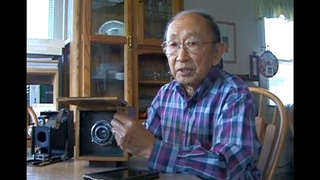Interviews
Reasons for conformity and competitiveness in Gardena, California
In a sense we were surrogates for our parents. We became their dreams that they could never have. We became a people that they wished they could have been had there not been racism in the camps or discrimination in the camps. And so in a way, I think, I think the kids were pushed pretty hard to achieve. I think that's one part of it.
I think the second part of it is a secret wish. It's both a wish and a need. The wish is that, “I'm gonna have my kids be so good that they're gonna show all those white people out there that we're worthy of being Americans.” So I think there might have been a subtle part of that. The need part of it was, “We need you to be exceptional. You gotta be twice as good as everyone else. 'Cause if you're not they're gonna send you to the camps again.” And while that wasn't said, specifically, I kinda sensed that's kinda like a subconscious idea that Japanese Americans had that they had to be so good. They couldn't make any mistakes. You couldn't afford to screw up whether it be being too visible about political issues, or being bad in school, or any of those things. I think the camps really did reinforce that notion of you have to be really, really good to remain in this country safely.
Date: February 8, 2003
Location: Washington, US
Interviewer: Tom Ikeda, Margaret Chon
Contributed by: Denshō: The Japanese American Legacy Project.








